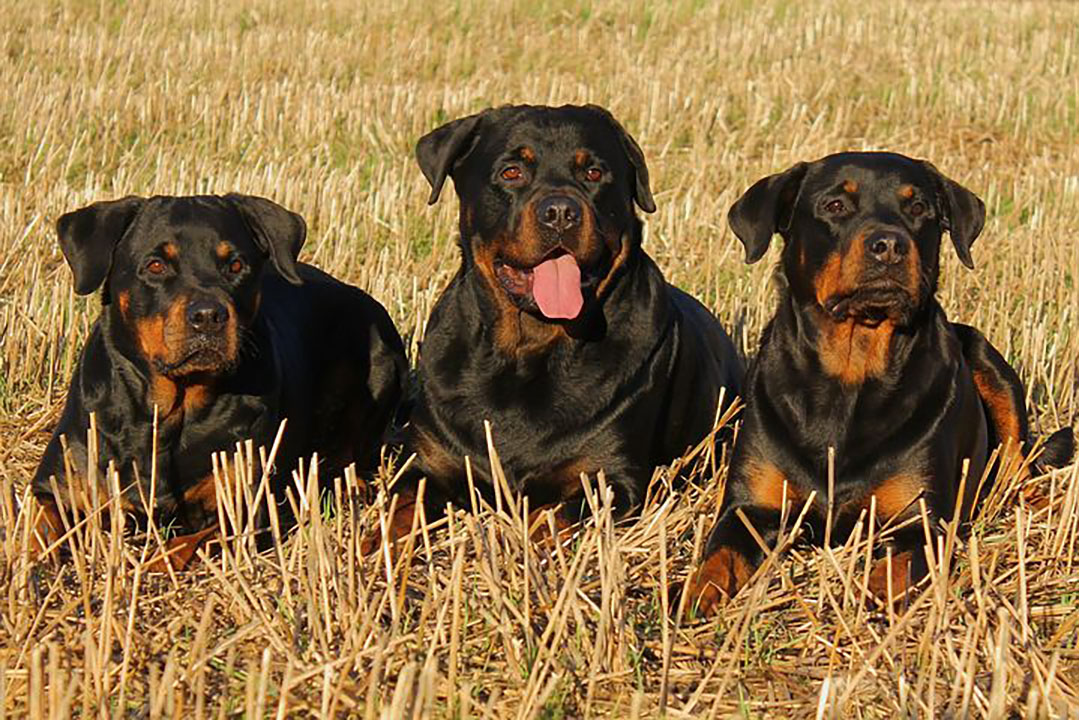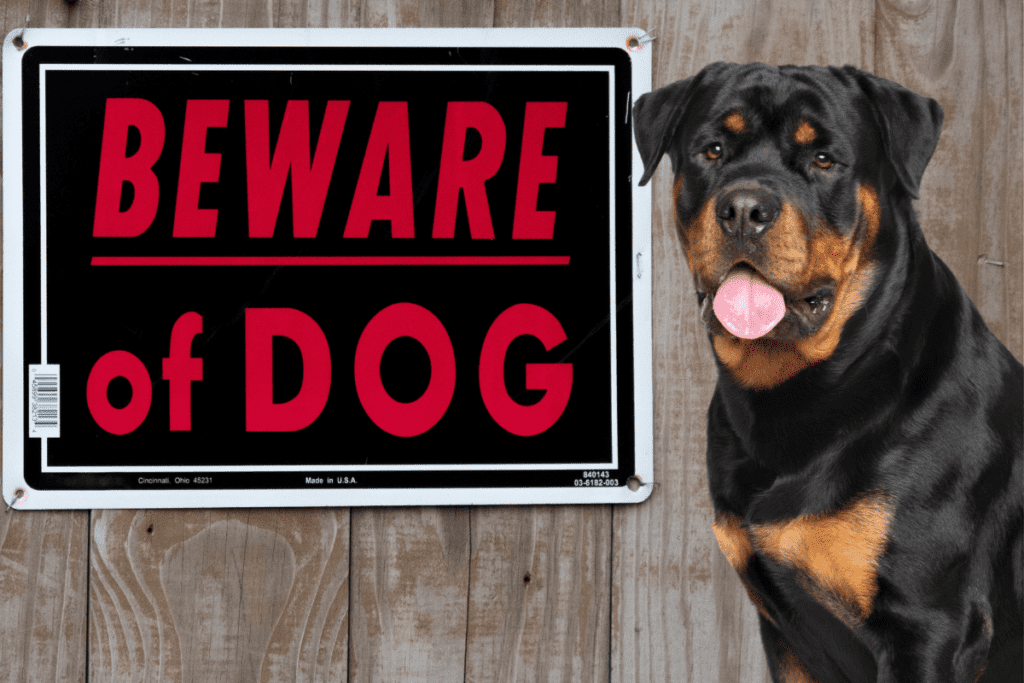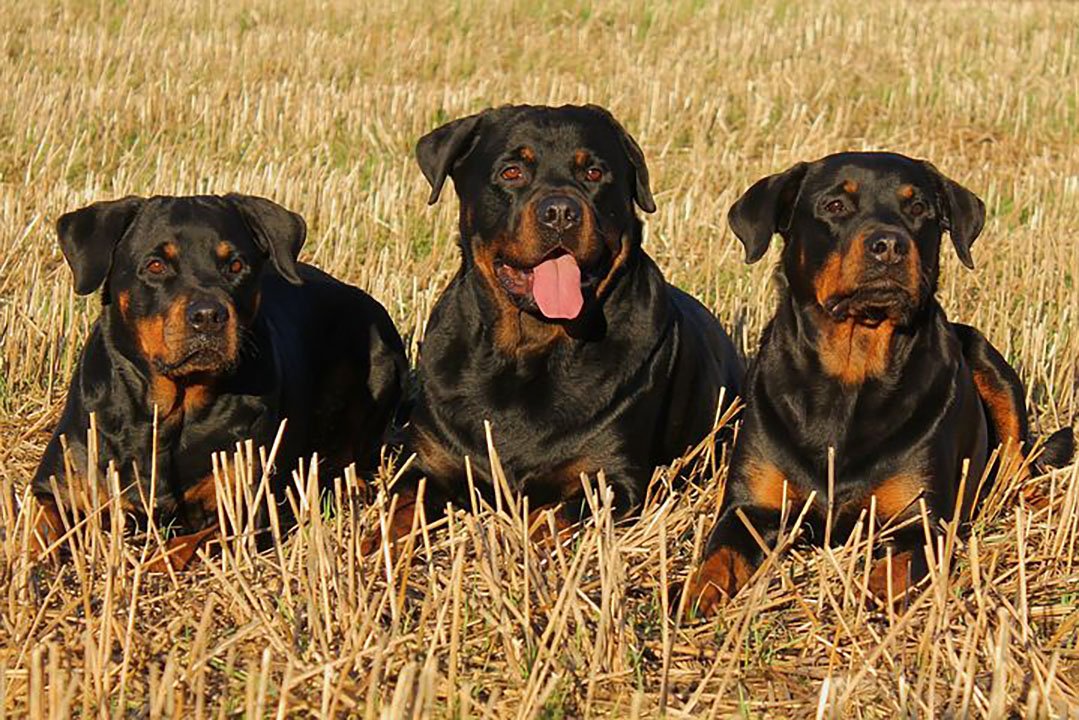Rottweilers are often misunderstood and have gained an undeserved bad reputation over the years. But have you ever wondered why? Well, let’s dive into the reasons why these loyal and protective dogs have been stigmatized.
One of the main factors contributing to the negative perception of Rottweilers is their portrayal in the media. Movies, TV shows, and news stories often depict them as aggressive or dangerous dogs, perpetuating the stereotype. However, it’s important to remember that media depictions don’t always reflect reality.
Another reason for their bad reputation is the behavior of irresponsible owners. Like any dog breed, Rottweilers require proper training, socialization, and care. Unfortunately, some owners neglect these responsibilities, leading to behavioral issues that can be misinterpreted as inherent aggression.
While Rottweilers possess natural protective instincts, they are not inherently aggressive. With proper training, socialization, and love, they can be gentle and loving family pets. It’s essential to judge each dog individually rather than relying on stereotypes. So, let’s debunk these misconceptions and celebrate Rottweilers for the wonderful companions they can be.
Rottweilers have been unfairly stigmatized in popular culture, leading to their bad reputation. Misinformation and lack of understanding contribute to this perception. It is crucial to remember that a dog’s behavior is primarily influenced by their upbringing, training, and socialization. Responsible ownership and proper training can help Rottweilers become well-behaved and loving companions. Educating the public and promoting positive interactions with Rottweilers can help dispel the negative stereotypes surrounding this misunderstood breed.

The Unfair Reputation of Rottweilers: Dispelling the Myths
When it comes to dog breeds, few face as much undeserved scrutiny and bias as Rottweilers. These loyal and intelligent dogs have been unfairly labeled as aggressive and dangerous, leading to a widespread misconception about their true nature. In this article, we will delve into the reasons behind the bad reputation of Rottweilers and uncover the truth behind the stereotypes. With a focus on dispelling myths and promoting understanding, we aim to shed light on why Rottweilers are often misunderstood.
The Impact of Media on Rottweiler’s Reputation
The media plays a significant role in shaping public perception, and unfortunately, Rottweilers have been victims of negative portrayal. Sensationalized headlines and exaggerated stories about Rottweiler attacks create a distorted image of the breed. While it is true that any dog can become aggressive if mistreated or trained improperly, the same can be said for many other breeds. However, incidents involving Rottweilers tend to receive more attention, further perpetuating the misconception that they are inherently dangerous.
It is crucial to understand that media coverage often lacks context. The actions of a few poorly trained or mistreated Rottweilers are not representative of the entire breed. Responsible ownership, socialization, and proper training are key factors in any dog’s behavior, including Rottweilers. By focusing only on isolated incidents and neglecting to highlight the countless Rottweiler success stories, the media perpetuates the unfair stigma surrounding these dogs.
Another factor that contributes to the misrepresentation of Rottweilers is breed-specific legislation. In some areas, laws have been enacted that directly target Rottweilers and restrict their ownership. These laws are often based on misconceptions and unfounded fears rather than evidence or statistics. Such legislation not only promotes discrimination but also ignores the importance of addressing responsible dog ownership as a whole.
Historical Context: From Working Dogs to Family Companions
Rottweilers have a rich historical background as working dogs. Originating in Germany, they were initially bred for herding livestock and pulling carts. Their strong build, intelligence, and protective instincts made them ideal for these tasks. However, as times changed, so did the roles of Rottweilers.
Over the years, Rottweilers transitioned from their original working roles to become beloved family companions. They proved their versatility by excelling in various fields, including search and rescue, therapy work, and police work. Yet, despite their remarkable ability to adapt and their loyalty to their families, their history as working dogs contributes to the perception that they are aggressive or not suitable for households with children.
It is important to note that the temperament and behavior of Rottweilers are highly influenced by their upbringing and environment. Like any other breed, they require proper socialization, training, and a loving environment to thrive. When given the opportunity and guidance to channel their energy and intelligence in positive ways, Rottweilers make wonderful family companions and can form deep bonds with their humans.
Training and Socialization: The Key to Balanced Rottweilers
Training and socialization are vital components in shaping a dog’s behavior, and Rottweilers are no exception. While Rottweilers are naturally protective of their families, proper training is necessary to ensure they understand appropriate boundaries and can differentiate between real threats and everyday situations. Early socialization, exposing Rottweilers to various people, animals, and environments, helps them develop into well-rounded and confident dogs.
Responsible ownership plays a pivotal role in the behavior of any dog breed, including Rottweilers. Providing them with regular exercise, mental stimulation, and a loving environment fosters a sense of security and contentment. Rottweilers thrive when given jobs to do, such as obedience training, agility, or even participating in dog sports. Their intelligence and eagerness to please make them apt learners and enthusiastic participants in various activities.
Ultimately, understanding and debunking the myths surrounding Rottweilers is crucial for promoting responsible ownership and giving these dogs the fair chance they deserve. By highlighting their positive qualities, advocating for proper training and socialization, and challenging the negative stereotypes, we can change the narrative surrounding Rottweilers and appreciate them for the incredible companions they truly are.
The Importance of Responsible Ownership
Responsible ownership is a fundamental aspect of ensuring a positive relationship with any dog breed, including Rottweilers. By following a few essential guidelines, owners can foster a safe and harmonious environment for both themselves and their pets.
Providing Proper Training and Socialization
Training and socialization are the building blocks of a well-behaved and balanced Rottweiler. Enrolling in obedience classes, hiring a professional trainer, or working with an experienced dog behaviorist can be invaluable in teaching your Rottweiler basic commands, good manners, and appropriate behavior in various situations. Regular socialization with other dogs, people, and new environments is equally important as it helps prevent shyness, fear, or aggression.
Keeping Up with Regular Exercise and Mental Stimulation
Rottweilers are energetic and intelligent dogs that require regular exercise and mental stimulation. Daily walks, playtime, and interactive toys are essential for physical and mental well-being. Failing to provide adequate exercise or stimulation can lead to boredom, frustration, and potentially destructive behavior. Engaging your Rottweiler’s mind and body will help maintain their overall happiness and prevent behavioral issues.
Maintaining Consistent Rules and Boundaries
Consistency is key when it comes to training and establishing boundaries for your Rottweiler. Establishing clear rules and enforcing them consistently helps prevent confusion and promotes a sense of order. Rottweilers thrive with a firm yet fair leadership that guides them and provides structure. By setting reasonable expectations and rewarding positive behaviors, you can foster a strong bond and mutual respect with your Rottweiler.
Key Takeaways: Why do Rottweilers have a bad reputation?
- Rottweilers have a bad reputation due to misconceptions about their temperament and aggression.
- Media portrayal and sensationalized stories contribute to the negative image of Rottweilers.
- Lack of proper training and socialization can lead to aggressive behavior in any dog breed, including Rottweilers.
- Rottweilers have protective instincts, which can be misunderstood as aggression if not properly controlled and channeled.
- It is important to judge individual dogs based on their behavior and not generalize the reputation of the entire breed.
## Frequently Asked Questions
Rottweilers are often perceived as having a bad reputation, but what are the reasons behind this perception? Let’s explore some common questions related to this topic.
### Q: Are Rottweilers naturally aggressive dogs?
A: No, Rottweilers are not naturally aggressive. Like any other breed, their behavior is influenced by genetics, socialization, and training. However, due to their history and physical attributes, some Rottweilers can be more assertive or protective. It is important to note that aggression in a dog is primarily a result of irresponsible ownership or a lack of proper training and socialization.
While Rottweilers have a naturally protective instinct, they can be incredibly gentle, loving, and loyal. It is crucial for owners to provide early socialization, consistent training, and plenty of positive experiences to ensure a well-behaved and friendly Rottweiler.
### Q: Why do Rottweilers often make the news for attacks or incidents?
A: Rottweilers often make headlines for attacks or incidents due to their physical strength and protective nature. Unfortunately, irresponsible ownership, neglect, or improper training can contribute to aggression in any dog breed, including Rottweilers. Media outlets tend to focus on sensational stories, leading to an exaggerated perception of Rottweilers’ involvement in incidents.
It is essential to emphasize that the behavior of individual dogs should not be generalized to the entire breed. Responsible ownership, proper training, and socialization are key to preventing any breed from engaging in aggressive behavior.
### Q: Can Rottweilers get along with other animals and children?
A: Yes, Rottweilers can get along well with other animals and children if they are properly socialized and trained from a young age. It’s crucial to expose them to different environments, people, and animals to ensure they develop good behavior and positive associations.
Rottweilers are known to be calm, affectionate, and protective of their families. They can form strong bonds with children and are often patient and gentle with them. However, supervision is always necessary to ensure the safety of both the Rottweiler and the children or other animals involved.
### Q: Are Rottweilers more prone to aggression than other dog breeds?
A: Rottweilers are not inherently more prone to aggression than other dog breeds. Aggression is an individual trait that can be influenced by various factors such as genetics, socialization, and training. It is crucial to remember that any breed of dog can potentially show aggression if not raised and trained appropriately.
The perception that Rottweilers are more aggressive comes from their physical strength, protective instincts, and media coverage of incidents involving the breed. Responsible ownership, socialization, and training play a crucial role in shaping a Rottweiler’s behavior and reducing the likelihood of aggression.
### Q: How can the negative reputation of Rottweilers be changed?
A: Changing the negative reputation of Rottweilers requires education, responsible ownership, and dispelling myths about the breed. It is essential to spread awareness about their true nature, highlighting their loyalty, intelligence, and affectionate qualities.
Responsible breeders and owners should promote proper training, socialization, and responsible ownership practices. Encouraging positive experiences with Rottweilers and sharing stories of well-behaved individuals can help challenge the negative stereotypes. Breed-specific legislation should be based on individual dog behavior rather than generalizations about a particular breed.
By advocating for responsible ownership, educating the public, and promoting positive experiences, the negative reputation surrounding Rottweilers can gradually be changed.

Why Do Rottweilers Have A Bad Reputation #shorts
Summary
Rottweilers have a bad reputation due to a few factors. Firstly, some irresponsible owners have mistreated and trained them for aggressive behavior. Secondly, media often portrays them negatively, perpetuating misconceptions. However, the truth is that Rottweilers can be loving and loyal family pets with proper care and training. It is important not to judge a whole breed based on the actions of a few individuals.
To combat the negative stigma, it is crucial to educate people about responsible ownership and proper training methods. Encouraging positive experiences and interactions with well-behaved Rottweilers can help change public perception. By focusing on the facts and understanding the breed’s true nature, we can break the stereotypes and give Rottweilers a fair chance to be seen for the wonderful dogs they can be.
